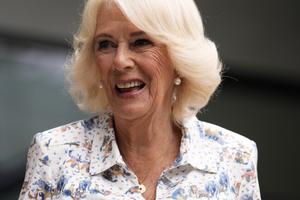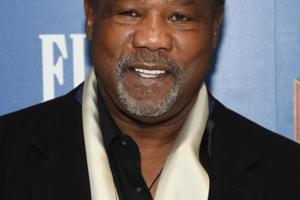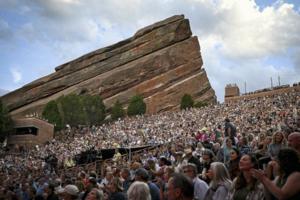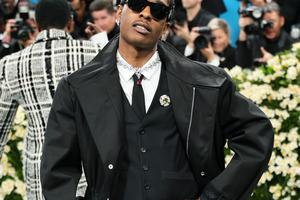Entertainment
/ArcaMax

Cary Elwes channels 'Princess Bride' in a final farewell to Rob Reiner: 'Life is pain without you'
LOS ANGELES — "The Princess Bride" star Cary Elwes says he will remain in mourning long after the shocking deaths of beloved friend Rob Reiner and his wife, Michele Singer Reiner, earlier this month.
"Because my heart still aches every time I think of you, I know the grief of losing you too soon will likely never go away," Elwes wrote Tuesday...Read more

9 bands you may have missed in 2025
PITTSBURGH — In an alternative universe, the mainstream isn't just Taylor Swift, Billie Eilish, Bad Bunny and Beyoncé.
It makes room for the rock bands that are making noise below the radar.
Before we move on to 2026, here are nine new bands we may have overlooked in '25.
Lambrini Girls
The Brighton, England, noise-punk duo of Phoebe ...Read more

America's 250th birthday is the moment Philly museums have been waiting for
PHILADELPHIA — No one throws a “Happy 250th Birthday, America” jammy jam like a Philadelphia museum.
Embedded into the fabric of our nation’s birthplace, Philly cultural institutions are gearing up for high-level deep dives into history, fun, folly, and reflection. Just in time for the Semiquincentennial.
Our museums’ dynamic ...Read more

Richard Smallwood, Grammy-nominated gospel superstar, dies at 77
Richard Smallwood, the Grammy-nominated gospel singer whose songs have been covered by the likes of Stevie Wonder and Whitney Houston, died in Maryland on Tuesday. He was 77.
The “I Love the Lord” singer died at the Brooke Grove Rehabilitation and Nursing Center in Sandy Spring due to complications from kidney failure, a representative ...Read more

Best games of 2025: Clair Obscur: Expedition 33, Dispatch, Hades II
Grand Theft Auto VI, probably the most anticipated game of all time at this point, didn’t come out this year (I called that one right!), but that doesn’t mean 2025 was hurting for amazing games to play. In fact, it was the complete opposite: 2025 was stuffed with superb releases, from acclaimed debuts to long-awaited sequels (not GTA VI, ...Read more

'Heated Rivalry' review: Gay hockey adaptation on HBO one of 2025's best shows
“Heated Rivalry” the novel is the kind of smutty romance read that’s thoroughly enjoyable but slightly ephemeral, a tale of angst and love and outlandish situations that doesn’t linger long in your mind once you get to the happily ever after-ish ending.
“Heated Rivalry” the TV series, however, is anything but: An effervescent ...Read more

Queen Camilla speaks out about sex attack
Queen Camilla has spoken for the first time about how she fought off a sex attacker when she was a teenager.
The 78-year-old royal was just 16 or 17 when the attack happened and she revealed how "angry" and "furious" she was by the events.
Camilla decided to finally speak about her ordeal after hearing about the courage of BBC racing ...Read more

Isiah Whitlock Jr., 'The Wire' actor and Spike Lee collaborator, dies at 71
LOS ANGELES — Isiah Whitlock Jr., best known for his role in HBO's "The Wire" and frequent collaborations with director Spike Lee in films such as "BlacKkKlansman" and "Da 5 Bloods," has died. He was 71.
Whitlock's manager, Brian Liebman, shared news of his client's death in an Instagram post on Tuesday.
"It is with tremendous sadness that I...Read more

For Oprah Winfrey, a croissant is now just a croissant -- not a struggle
LOS ANGELES — Yes, Oprah Winfrey has discussed her weight loss and weight gain and weight in general before — many, many times before. The difference this time around, she says, is how little food noise there is in her daily life, and how little shame. It’s so quiet, in fact, that she can eat a whole croissant and simply acknowledge she ...Read more

15 Atlanta-produced TV shows and films expected to debut in 2026
ATLANTA — While 2025 was one of the slowest years for production in metro Atlanta in more than a decade, plenty of A-list actors such as Nicolas Cage, Amy Adams and Jason Bateman spent time in the area for a variety of films and TV shows.
Here is a sampling of Georgia-produced projects with specific 2026 launch dates, along with several ...Read more

Red Rocks broke records in attendance, rankings in 2025
DENVER — Red Rocks Amphitheatre continued to reach new heights in 2025, notching wins for the best-attended amphitheater in the United States, as well as the second most-attended venue in the U.S. overall.
The rankings come from industry publications Pollstar and Billboard, which annually list the roughly 9,500-seat Morrison venue alongside ...Read more

Sean Astin's help for struggling former child star
Sean Astin has stepped in to help Tylor Chase.
Ned's Declassified star Tylor, 34, has been living on the streets and dealing with addiction for some time and Stranger Things star Sean - who is also the president of the Screen Actors Guild - reached out to offer his support.
Tylor's former co-star Daniel Curtis Lee - who recently tried to get ...Read more

Chevy Chase doc director: 'I'd never done an interview where someone was so rude to me'
Chevy Chase is the rudest celebrity Marina Zenovich has ever interviewed.
The I'm Chevy Chase, and You're Not director admitted she was initially worried about how to approach the 82-year-old actor about his reputation for being difficult and abrasive but it was easy after he was immediately rude to her.
When Zenovich told Chevy "I'm just ...Read more

Justin Hawkins takes another swipe at Yungblud
Justin Hawkins has warned music is "in trouble" if Yungblud is the future of rock.
The Darkness frontman sparked upset when he blasted the I Think I'm Okay hitmaker's MTV VMAs tribute to the late Ozzy Osbourne and while he doesn't see the row as a "spat", he stands by his comments over Yungblud's use of autotune.
He told Classic Rock magazine:...Read more

ASAP Rocky pays rent for residents in his childhood building
ASAP Rocky is helping to pay rent for people living in his childhood building.
The 37-year-old music star has teamed up with Bilt, a payments and commerce network, to pay the January rent for people in his childhood building, and Rocky has made the donation to celebrate the release of Don't Be Dumb, his long-awaited fourth studio album.
Rocky ...Read more

Sterling K. Brown: Marriage requires 'rededication'
Sterling K. Brown believes marriage requires "constant rededication".
The Paradise actor wed Ryan Michelle Bathe - the mother of his sons Andrew, 14, and 10-year-old Amare - in 2006 and he thinks it is important to be "transparent" about the challenges in their relationship to show things aren't always as "polished" as they seem.
Discussing ...Read more

Sadie Sink has emotional reaction to Kate Bush
Sadie Sink feels "very emotional" when she hears Kate Bush's Running Up that Hill.
The 22-year-old actress' Stranger Things character Max Mayfield became synonymous with the 1985 classic track thanks to the fourth season of the show but she insisted she isn't "tired" of hearing the song now because she has so many memories attached to it.
She ...Read more

Sound Advice: Accounting for differing sound quality with music
Q. I have a very economical setup for streaming music. It uses a WiiM Ultra Streamer and 100-watt WiiM amplifier, playing over Klipsch 600M bookshelf speakers with a 10-inch Klipsch subwoofer. I’m 70, so most of what I listen to is from my era, namely '60s/'70s rock and a lot of dead vocalists like Frank Sinatra. I always stream at the highest...Read more

This legendary LA music venue is closing after 25 years. But its story isn't over
LOS ANGELES — When musician Cary Brothers found out that the Hotel Cafe was shutting down, he felt like he'd been told his parents were selling his childhood home.
The beloved music venue, which kick-started the careers of then-little-known singer-songwriters Adele, Sara Bareilles and Damien Rice, is closing its doors in early 2026, its co-...Read more

Robert Lloyd: 6 ways public broadcasting will improve your life. And that's a promise
LOS ANGELES — Community-supported media has had a tough year with the defunding of the Corp. for Public Broadcasting, created by Congress under the Public Broadcasting Act of 1967. At the time of its death, the organization provided grants to 365 noncommercial television and 1,216 radio stations. ("Ending Taxpayer Support of Biased Media" was ...Read more










